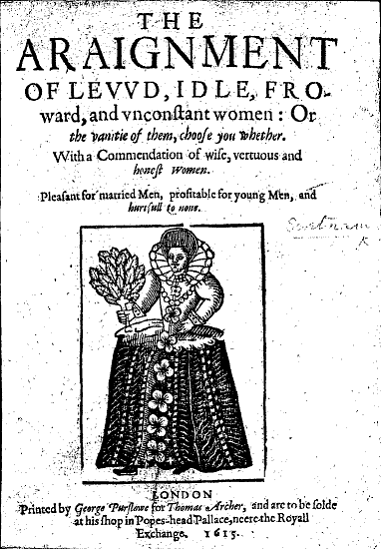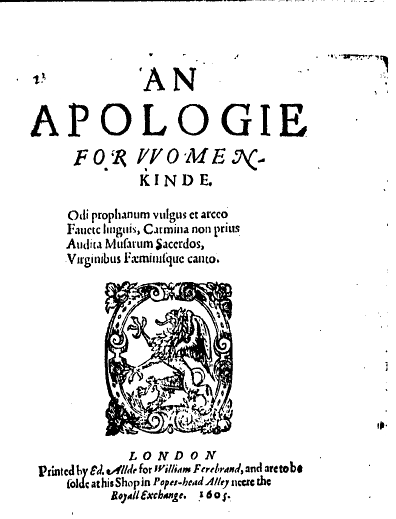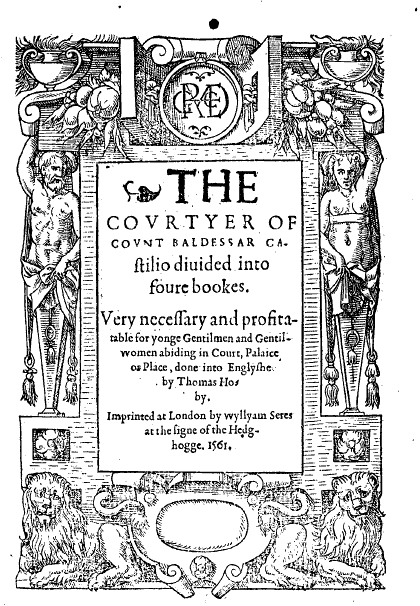|

"For women have a thousand ways to entise thee, and ten thousand waies to
deceiue thee" (15); "they lay out the foldes of their haire, to entangle men
into their loue; betwixt their brests is the vale of destruction, & in their
beds there is hell, sorrow & repentance" (16); "Eagles eat not men till they are
dead, but women deuoure them aliue: for a woman will pick thy pocket, and empty
thy purse, laugh in thy face and cut thy throat" (16); "They will play the
horse-leach to suck away thy wealth, but in the winter of thy misery shee will
flie away from thee" (16).
|
|

Well, sundry times of women I haue read,
Which for their honours, now long since are dead.
As Lucia and chaste Lucretia,
The Damesels Hyppo and Orythia:
But of one man as yet I neuer heard,
Who for his chastitie tooke such reward.
Then fondlings cease the female sexe to blame,
None truth can speake that turneth to their shame.
Their very paines by God to them enioyn'd,
Shewe how their mindes to goodnes are enclin'd.
For 'tis a rule; God sends his troubles such
As be his creatures able, less or much. (C)
|
|
 From Book 3
online text at Renascence Editions
http://darkwing.uoregon.edu/%7Erbear/courtier/courtier3.html)
And I, answered the L. Gaspar smilinge, …I denie not that men have taken a
litle libertie, and that bicause they know by the commune opinion, that to them
wanton living is not so sclanderous as to women, which through the weaknes of
their kinde, are much more enclined to appetites, then men: and in case they absteine otherwhile from satisfiynge their lustes, they doe it for shame, not
that will is not most readye in them, and therfore have men layed uppon them
feare of sclaunder for a bridle, to keepe them (in a maner) whether they will or
no in this vertue, without the whiche (to saye the trothe) they were litle to be
set bye: for the world hath no profit by women, but for gettinge of children.
L. Cesar then beegane:...women absteine more from uncleane livinge, then menne. And sure it is, that they are not kept short with any other bridle, then what they put upon them selves. And that it is true, the moste part of them that be kept under with overstreict looking to, or beaten of their husbandes or fathers, are lesse chaste, then they that have some libertye. But generallye a greate bridle to women, is the zeale of true vertue and the desire of good name, whyche manye that I have knowen in my dayes more esteame, then their owne lief. |
|
|
|
| |